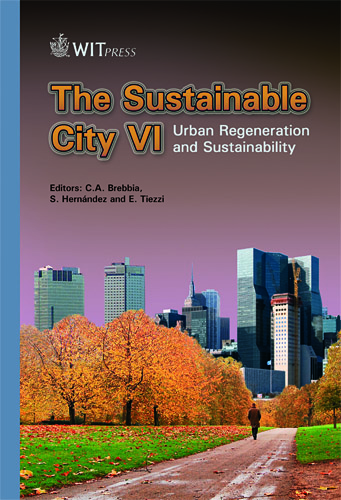Sustainable Housing For Sustainable Cities: Case Study Of Bucharest
Price
Free (open access)
Transaction
Volume
129
Pages
12
Page Range
595 - 606
Published
2010
Size
684 kb
Paper DOI
10.2495/SC100501
Copyright
WIT Press
Author(s)
E. Creanga, I. Budisteanu & M. Duda
Abstract
Housing accounts for the major part of a city’s assets. Different perspectives on sustainable housing encompass technical, social, political and economic issues. Physical indicators are not enough to assess the overall quality of housing. Perceptions of sustainable housing have moved from individual dwellings to issues of community and neighbourhood. Romania is confronted with specific challenges in housing. Due to the wholesale privatisation of the early 1990s, Romania is a \“country of homeowners” with over 97% of the housing stock in private ownership. Twenty years after the political changes, the country is still confronted with a wide range of housing sustainability issues: at the level of buildings with overdue maintenance and repair, energy use, raising running costs; at neighbourhood level with transportation, public space, dissatisfaction of residents; at city level, with the growing negative perception of certain neighbourhoods and the declining asset value of properties. In Bucharest, where over 80% of dwellings are situated in blocks of flats in large housing estates built after 1960, housing is largely at odds with the barriers that would make the housing environment liveable: economic, financial, institutional, perceptual, behavioural and, not least, the market. Government actions and certain community initiatives address the security of buildings, security of tenure, security of asset value. New construction is constrained by scarce free land within the city and a market that caters mainly for the upper income scale. Freedom of choice has been restricted so far to residential parks at the outskirts of the city and some condominiums scattered within its boundaries. The paper highlights recent trends and the envisaged longterm views for a sustainable development of Bucharest. Keywords: home ownership, housing policy, housing quality, urban structure, social segregation, housing consumption patterns, urban development.
Keywords
home ownership, housing policy, housing quality, urban structure,social segregation, housing consumption patterns, urban development





